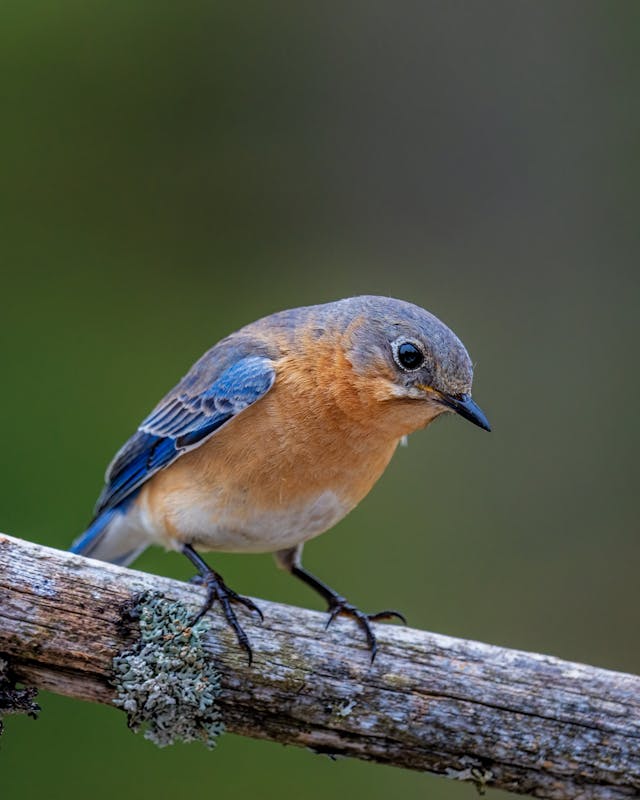As temperatures rise and outdoor activities increase, so does the threat of tick-borne diseases like Lyme disease and Rocky Mountain spotted fever. But what is the best option to keep these pests at bay?
Professional pest control is the only way to completely eliminate ticks, and we always recommend you reach out to a professional when you’re struggling with these blood-sucking pests. However, organic tick control can help supplement existing solutions!
In this guide, we’ll explore practical and sustainable strategies to naturally repel ticks. Discover how to create a tick-free environment using organic methods, from landscaping tips to DIY repellents.
Understanding Ticks
Ticks are tiny arachnids that feed on the blood of mammals, birds, reptiles, and amphibians. They are external parasites, meaning they live and reproduce by feeding on the blood of their hosts.
Ticks are known vectors of many harmful diseases, including Lyme disease, Rocky Mountain spotted fever, babesiosis, and anaplasmosis. Lyme disease, caused by the bacterium Borrelia burgdorferi, is transmitted primarily by black-legged ticks (deer ticks) in North America.
While symptoms for each disease differ, here are some common symptoms you may experience regardless of the illness.
- Rash
- Fever
- Fatigue
- Joint pain
- Muscle aches
If you notice any of these symptoms after being bitten by a tick, contact a doctor immediately. Try to remember the species or catch the tick so your doctor can help figure out what you may suffer from.
Types of Organic Tick Control
Organic tick control methods focus on natural solutions while effectively managing tick populations. Let’s explore some key approaches:
Natural Habit Modification
Simple adjustments to your outdoor environment can significantly reduce tick habitats and encounters. Here are practical landscaping tips and methods to create tick-safe zones in your yard.
- Clear Vegetation: Keep grassy areas mowed short and remove leaf litter and brush where ticks thrive.
- Create Barriers: To discourage ticks from migrating into recreational spaces, use gravel or wood chips as a border between wooded areas and your lawn.
- Sunlight Exposure: Trim tree branches and bushes to allow more sunlight into your yard,
- Outdoor Play Areas: Designate play areas for children and pets in sunny, well-maintained parts of the yard, away from tall grass and brush.
- Tick-Repellent Plants: Incorporate lavender, rosemary, and garlic to prevent ticks from hiding in your landscaping.
Biological Control
You can even use the local wildlife to your advantage with organic tick control!

Certain animals and insects feed on ticks as part of their natural diet, helping to keep tick numbers in check. Small predators like chickens, guinea fowl, and certain species of birds (like bluebirds and wrens) consume ticks in addition to their typical environment.
You can also create habitat diversity by planting native shrubs and flowers that attract other beneficial wildlife. Installing bird feeders and birdbaths will also provide food and water sources for wild birds and encourage them to frequent your yard.
Physical Barriers & Protection
Physical barriers are crucial in preventing ticks from accessing your living spaces. Here are effective methods to create barriers against ticks:
- Install physical barriers like fences to keep wildlife hosts (deer and rodents) that carry ticks away from your property.
- When spending time outdoors, wear long sleeves, tuck your pants into socks, and don closed-toe shoes to minimize skin exposure to ticks.
- After outdoor activities, check for ticks on yourself, children, and pets, paying close attention to areas like the hairline, armpits, and groin where ticks tend to attach.
Organic Tick Repellents
Organic tick control repellents offer effective alternatives to keep ticks from taking over your lawn and biting your family. For example, certain essential oils, like lavender, eucalyptus, or citronella oil, can encourage ticks to find food elsewhere.
You can even make your own DIY options to spray on yourself or around your backyard. If you’re interested in using essential oils to repel ticks, mix lavender and eucalyptus essential oils with water in a spray bottle. Apply to clothing and exposed skin before outdoor activities.
Garlic can also help repel ticks. If you don’t mind the smell, create a garlic-infused spray by soaking crushed garlic cloves in water overnight. Strain and spray around your yard to repel ticks.
Before leaving your home, apply bug spray or your DIY repellents to your clothing and skin before going outdoors, focusing on ankles, wrists, and exposed areas. Remember to reapply repellents as needed, especially after swimming or heavy perspiration.
Integrated Pest Management (IPM) Approaches
Integrated Pest Management (IPM) combines multiple strategies to manage pest populations effectively while minimizing environmental impact. Here’s how IPM can be used alongside organic tick control:

- Try landscaping your lawn regularly to reduce tick habitats and attract natural predators.
- Conduct routine property inspections for signs of tick activity and implement control measures accordingly.
- Use weather and habitat conditions to predict tick activity and adjust management practices.
- Assess the effectiveness of your tick control efforts and make adjustments based on the results.
When to Trust the Professional Over Organic Tick Control
Organic tick control methods offer sustainable and environmentally friendly solutions, but these often aren’t the most effective approaches. For example, organic repellents can’t provide the same level of immediate or long-term control as professional pest solutions can.
Plus, natural repellents often require more frequent application compared to chemical options, especially in high-tick activity areas. And, in some cases, organic methods may not be sufficient to manage large or persistent tick infestations.
At the first sign of a tick infestation, get in touch with the experts at proof. Our technicians can provide a strategy that complements your specific pest problems, keeping your home tick-free throughout the season.
While the DIY approach can help along the way, never rely on these methods for total protection. Contact us today to enroll in our annual Mosquito & Tick Service to keep both blood-sucking pests at bay!

